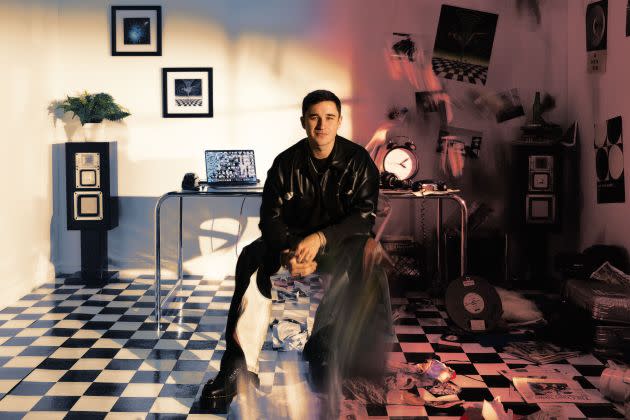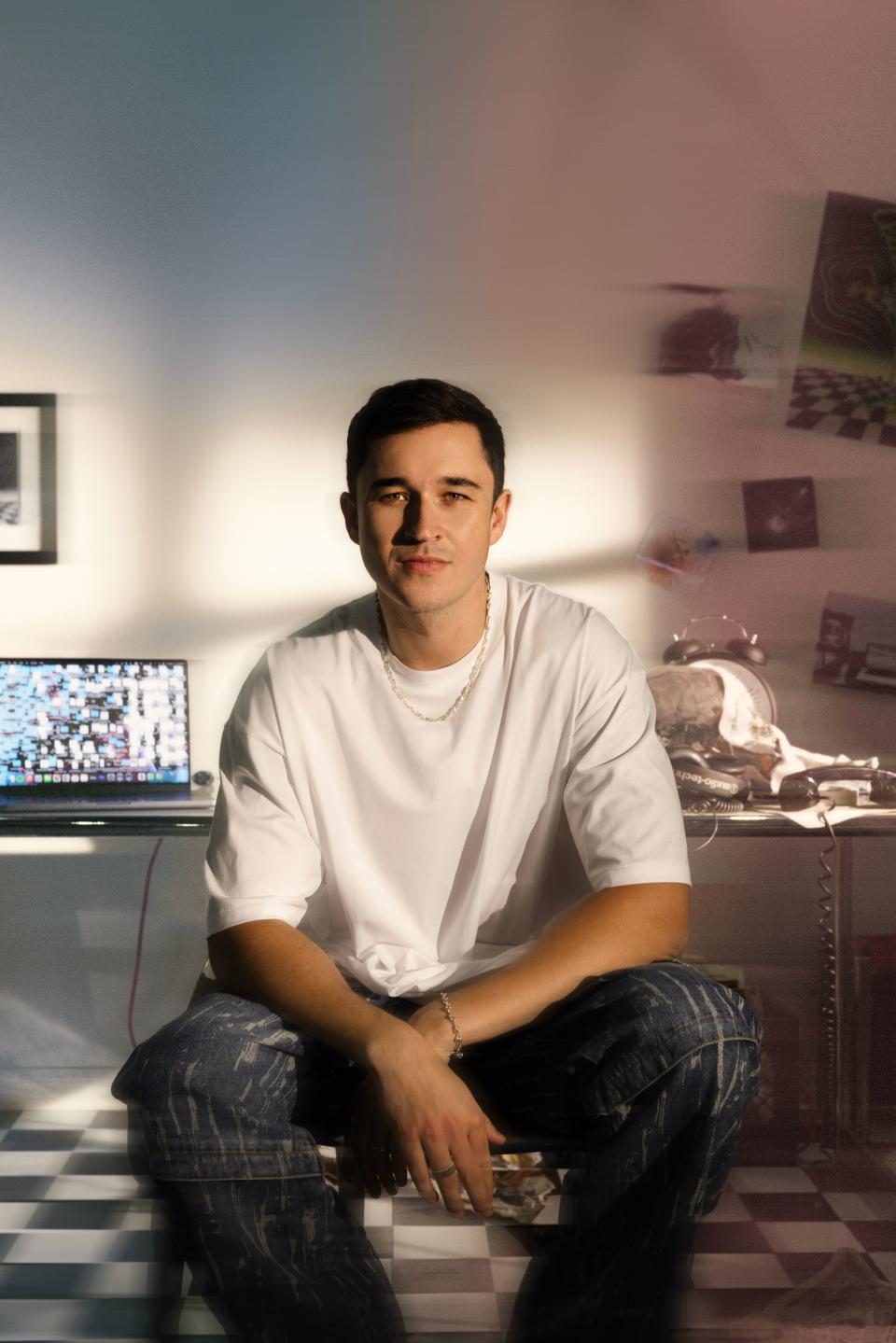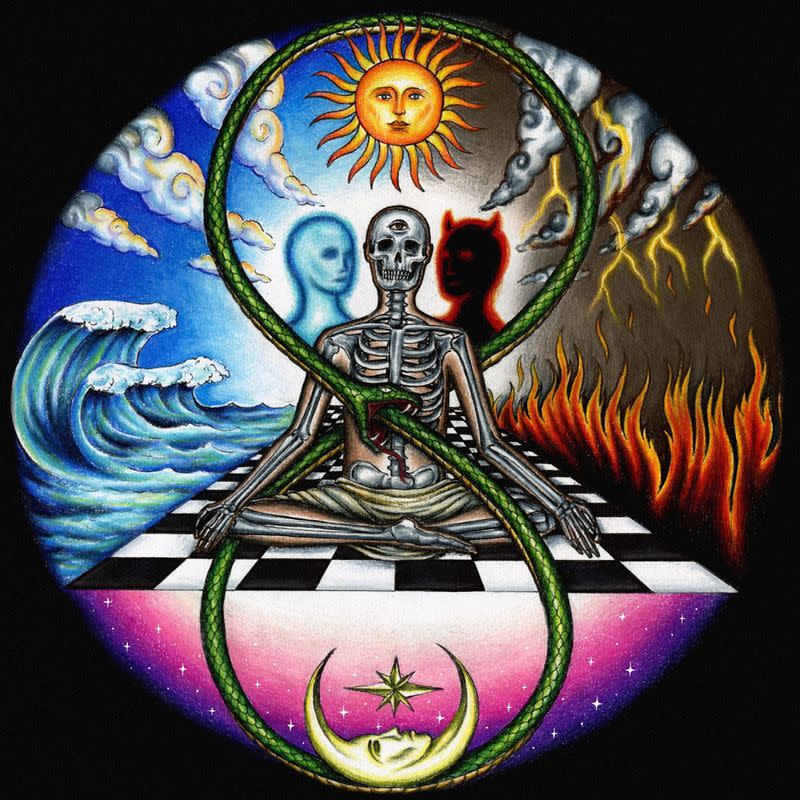How John Summit Went From Accountant to Jet-Setting DJ-Artist Selling Out Madison Square Garden

How did musician John Summit go from DJing college parties and accounting to selling out Madison Square Garden?
The laid-back producer — who, yes, still makes music from his bedroom — is one of EDM’s biggest rising stars. The 29-year-old’s most popular track “Where You Are” with Hayla was recently certified gold by the RIAA (it was also featured on Barack Obama’s best songs of the year playlist in 2023). The up-and-comer has delivered high-energy sets worldwide and closed out massive festivals from Coachella to EDC, in addition to selling out his own headlining performances at MSG (in the span of two hours) and BMO Stadium in Los Angeles.
Raised in the Chicago suburb Naperville, the University of Illinois Urbana-Champaign alum and self-trained producer worked as a certified public accountant by day post grad, and taught music production tutorials at night. Summit, whose real name is John Schuster, eventually got fired from the accounting job as his own music started taking off, but it left him with a work ethic that’s carried through the entirety of his music career.
Summit now has a full album under his belt. In the 12-song set titled “Comfort in Chaos,” Summit leans into his Chicago house roots while incorporating elements of garage, liquid funk and more. He released the album via Darkroom/Experts Only — Experts Only being his very own house and techno music label and events brand.
“That’s my passion. That’s my baby, having my own label and signing and putting on other artists. Because that’s how I came onto the scene,” Summit tells Variety. “I don’t make money with it. It’s cool to be able to really help grow the scene that helped grow me.”
Amid a busy week of traveling, playing shows and dropping his debut album — and while being on just one hour of sleep — Summit opens up about his journey from frat parties to main stages, his massive social media following and how he finds comfort in this surrounding chaos.

How did you originally get into DJing and music production?
In high school, I was really into film and wanted to go to film school. But that wasn’t very practical just being from a normal, more middle class family. My parents were like, “No, you can’t do that; You gotta go get a business degree” — being smart parents. If I had a kid, and they said they want to be a DJ, I’d be like, “You can do that on the side.” But in college, I was always DJing parties and then producing music in my dorm. I still to this day produce all my music in my bedroom because that’s where I feel comfortable.
I was releasing music on SoundCloud, then I graduated, got my master’s degree in accounting and got my job in accounting. But I was a terrible accountant, because I didn’t care about it at all. That was just to pay the bills while making music and playing the parties every weekend.
How did you make connections in the industry?
I had zero music industry connections whatsoever. So I was just doing warehouse parties with my friends. Everything we did was just throwing our own parties, because if you have no connections, you can’t just play clubs. But what’s amazing about the internet and SoundCloud is that you start to gain a following.
The first time I heard one of my tracks played out was at Spybar in Chicago by the resident DJ there. And then after that night, I went up to him. I was like, “Hey, thank you for playing my track.” And he’s like, “What? Oh, that’s you.” And then from there, I started playing the clubs.
The history of house music is hugely intertwined with the city of Chicago. Did growing up in the area influence you?
Definitely. The first house track I ever heard was “Percolator” by Green Velvet. And I just closed out EDC with him a couple months ago. And we did it back-to-back at Madison Square Garden as well, too. Which is crazy. And then there’s just such a huge underground scene. It is such a tight knit community.
What was the process of creating “Comfort in Chaos”?
I’ve always wanted to write a full album. I’ve been doing singles for eight years now. But I’ve never felt confident enough to make a full body of work that actually can flow and have high highs and lows to it. I had all these beats I’ve made over the past few years, because I’ve been doing the big high energy singles — and if they weren’t big and high energy, I just saved it and put it in a folder. Which is why, if you see my desktop, I have a million folders on it.
But finally once I got the production in a good place, I went to London last November to really hone in on the songwriting, working with all the singers and songwriters on this album, to really take it to the next level and make it a complete body of work. So even though the majority of the songwriting was in November, it’s taken years to get to this point.

How did the album’s concept come about?
That came about in November, too, because first of all, just looking at my desktop, everyone I worked with was like, “Dude, your stuff is chaotic. How do you do this?” I’m like, “To me, it’s comfortable.” Because my brain is so used to it.
It’s way more than that, though. I live in this chaos. Getting good sleep every night and waking up and doing the same routine would drive me crazy. So I’ve really found my comfort in this chaos. The whole concept of “Comfort in Chaos” is the duality of being John Summit and being John Schuster — John Summit, the big party entertainer; John Schuster, the more introverted, stay-at-home guy.
But being able to take a whole month off to create the album, that was my first time taking a month off in three years. That was my first time taking more than one week off in more than three years. And so I was able to actually reassess my life and look back on how crazy it’s been. This album is very introspective. And that’s why the art is meditating in the middle, trying to find peace in it all.
So John Summit is your party persona, more out there, more outgoing, and then John Schuster’s your day-to-day self, a little bit more laid back and introverted?
Exactly. I feel like a lot of people can relate, it’s not like I’m totally an introvert or totally an extrovert, but I really do have to turn it on.
When I’m on the way to a show, I’m dead quiet in the car. I don’t pregame before shows at all. And then I have to turn that on. It’s like if your friend’s having a birthday party and you’re tired after work, and you don’t want to go, but as soon as you walk in the door, you’re like, “Yay!” That’s how I feel going on stage. It’s a different mindset.
How did the song “Tears” featuring Paige Cavell come about?
Paige came to me with the song idea because she was going through heartbreak at the time. And I really wanted to write a track that was about highs and lows and started very melodramatic but ends on a very confident note.
When it starts, you think it’s gonna be a ballad or something. And then it ends on a full-on festival banger vibe. It’s my favorite song. It’s a true song, start to finish. Where normally an EDM song has multiple builds and drops, kinda repeats, here there’s only one drop in the song.
Social media has really become a part of your brand, though many artists often don’t enjoy it. What’s your relationship like with social media?
The reason why I love it is that I got good with it during 2020 when I, like everyone, was stuck at home in my parents’ basement, and I was bored as hell not seeing any of my friends. And then I started going on Instagram live every single day. And I was actually connecting with the fans. And then I would do Twitch live streams with me DJing and reading all the comments. I actually would become friends with all the fans with Discord. It became part of my life, and then once everything opened up, I still enjoyed it.
It’s also obviously helpful in marketing your music and reaching new audiences.
Marketing music is annoying, because in an ideal world, you just make the music, and everyone likes it. But I think of Steve Jobs with the iPhone — he made the iPhone and he made one of the best products of all time, and then he marketed it in such a fun way. If you treat it as an art, too, you have fun with it.
You’ve been growing on social media for a long time and really exploded in the last couple months. Is it weird having people so invested in your personal life?
It’s wild.
This is a weird thing for me to get used to, that’s for sure. Because I used to think people didn’t care at all. And now, I feel like I’m living a reality show because I’ll do anything in public — it could just be a video of me walking through the airport — and it goes super viral. It’s just a funny feeling. I got paparazzi on me at all times because anyone with a phone can post to the internet. But I’m really having fun with it, though.
It’s funny because many people will know your songs and see you on social media, but not know you created those songs.
I don’t sing on my own tracks. So you could know “Where You Are,” for example, but you might not know I’m the guy behind it. So it is funny if people see a video of me, it goes viral, and they look me up, and they’re like, “Oh, that’s that guy.”
What are your ultimate goals in music?
I want to see where this album takes me, because I only do six month goals, so they’re actually actionable.
I just want to keep expanding, though — get more into music videos, get more into fashion, get more into scoring a movie, one day. I mean, Hans Zimmer is the GOAT, and I love everything he does. That could be when I’m done touring, I could do that. I’m a big believer that if you do whatever you’re currently inspired by, you’re going to excel at it. If you do something just to do it, you won’t do it well. So it depends where inspiration takes me next.
This interview has been edited and condensed for clarity.
Best of Variety
Sign up for Variety’s Newsletter. For the latest news, follow us on Facebook, Twitter, and Instagram.

 Yahoo News
Yahoo News 
